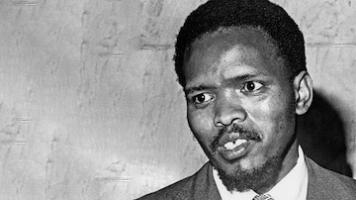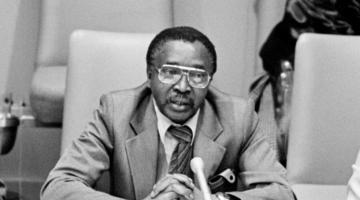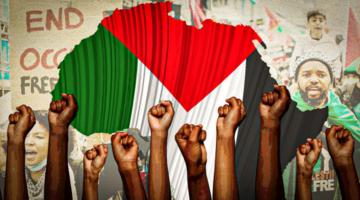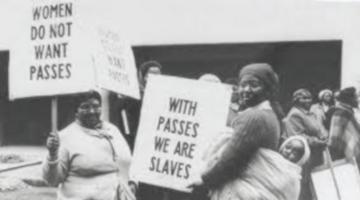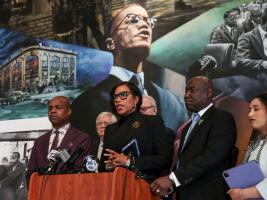In this series, we ask acclaimed authors to answer five questions about their book. This week’s featured author is Hugo ka Canham. Canham is Associate Professor of Psychology at the University of South Africa and coeditor of Black Academic Voices: The South African Experience. His book is Riotous Deathscapes.
Roberto Sirvent: How can your book help BAR readers understand the current political and social climate?
Hugo ka Canham: Riotous Deathscapes is an insistence on looking at our multiple black pasts in order to understand current social and political realities and contestations. It centers black communities in South Africa’s rural nether regions or what the book terms blighted zones of abandonment where the state is an absentee landlord and people are compelled to self-govern with minimum state support. A reserve for social death. This analysis reminds us of the long arc and persistent neglect of black communities by modern statecraft. It points to the necropolitical tendencies of racial capitalism and reads the overrepresentation of death among black people as part of a racial calculus of late capitalism. The hauntings of history latch onto the current political and social climate to create black deathscapes.
What do you hope activists and community organizers will take away from reading your book?
While the book engages death, it is also about life because death and life co-exist. I hope that activists and community organizers will be struck by the will to survive and to live. Activist work often burns us out and this sometimes occludes our vision. The book points us to what Katherine McKittrick terms black livingness—the capacity of blackness to look up from the hold. Frantz Fanon and Fred Moten think of this as the instinct to leap in the breach in search of freedom. In addition, I would like readers to remember the pervasive presence of pleasure in black life. Keguro Macharia’s insistence on attending to our erotic selves as we sidle up and pass by in the daily rhythms of life. Even among the forsaken, in the hold, in various forms of black enclosure, there is pleasure. I offer pathways through which we might attend differently in order to apprehend black pleasure on the “demonic ground” of our vast deathscapes here on the African continent and its diasporas.
We know readers will learn a lot from your book, but what do you hope readers will un-learn? In other words, is there a particular ideology you’re hoping to dismantle?
I too had to unlearn in the process of researching and writing the book. For example, while I am drawn to the analytical possibilities offered by Afro-pessimism, the communities I was thinking with, my co-protagonists, rejected this lens. Their stories and lives are more complex than any single theoretical reading. They theorize their own lives and histories. This required closer attending to how they theorize in practice. From attending differently to what my training had prepared me for, I was able to decipher their vernacular theories that have sustained them for centuries. This opens new worlds and requires conceptual and methodological unlearning. So, while I wouldn’t advocate for dismantling ways of seeing, unless they are prejudicial, I hope readers will be opened to plurality.
Perhaps another ideological position we might consider revisiting in reading Riotous Deathscapes is to take black death seriously. To sit with it in ways that Christina Sharpe describes through her concept of “wake work”. To listen to its sonic registers, to apprehend it haptically, to recognize its odor, to see it in our field of vision. But, alongside this, the book points to the generativity of African cosmologies in suturing death to livingness. This livens the dead as revered ancestors who guide us through life and prepare us for death. This is a beautiful paradox that defeats white supremacy and global racial capitalism.
Lastly, to thread an earlier point, black death and life co-exist. To flatten black life to the frequencies of our death and dying is to unsee how vitally alive we are. It is to look past the ways in which we dance and to misapprehend our laughter for wailing. It is to misrecognize the ways we leap in the breach in freedom bound movements as enclosure. Ideologically then, along with other black studies scholars, I am suggesting that the richest and most generative lenses are those that apprehend death and life as complex twin realities.
Which intellectuals and/or intellectual movements most inspire your work?
African eco-feminist, black studies, and scholars who scour the co-constitutive reality of the human and nature most inspired my work. Perhaps a phrase or conceptual frame to capture this would be black planetary studies. These traditions do not seek a place on the hierarchy that Sylvia Wynter termed the Chain of Being. In other words, these intellectual movements do not end at demanding a place on the table of the human—“please recognize us as equal humans”. Instead, they look past the colonial investments of the human and insist on seeing us as part of a planetary orbit where we are not lords over the natural world but a part of it. This is how our indigenous ancestors lived. This not only gives us the tools to withstand and work against climate devastation wrought by capitalist greed, but it grounds us in place with a wisdom that predates settler colonialism. It sutures us in place—ontologically and epistemologically. For me, scholars that exemplify this work are Sylvia Tamale and Tiffany L. King. I learned a great deal from Tamale’s Decolonization and Afro-feminism and King’s seminal Black Shoals: Offshore formations and Black and Native studies. Thinking with these scholars and others, I suggest that black people in Africa can claim a life affirming blackness and indigeneity. A security of being in place and a position from which we might resist and practice radical empathy with the black diaspora.
Which two books published in the last five years would you recommend to BAR readers? How do you envision engaging these titles in your future work?
Although I engage Keguro Macharia’s book Frottage: Frictions of intimacy across the black diaspora, there is so much more to learn from this work. The text’s generativity is important for several reasons. Macharia is writing from Kenya in Africa and is producing groundbreaking scholarship. For many of us located on the continent, there is something to be proud of here. Not because we do not write, but because our work is so often unseen and patronizingly passed over. More substantively though, the book opens up black relation by productively attending to the erotic in order to reread seminal political figures and texts on the continent and the diaspora. It subtly and with great nuance points us to new intellectual horizons of engaging queer studies in Africa and elsewhere. And importantly, since Macharia is very interested in the work of suturing, his book is a great example of how we might think across black geographies in order to lean into our relatedness both in the present and in the past. Going forward, I too would like to think with this formation of the suture in order to explore the rich possibilities that are opened up.
I have not yet read Christina Sharpe’s Ordinary Notes but I did attend a pre-publication reading when she recently visited Johannesburg. I was drawn headlong into the words (worlds!), and engulfed by the sensorial world making of the reading. Her insistence on gathering and on black breathing is appealing and I want to learn more. Sometimes a book captures you through senses beyond the visual. Tina Campt terms these “frequential registers”. I am captured by the text. If it is anything like her preceding In the wake: On blackness and being, we will be discussing and learning from this new work for years to come. It teaches us to breathe. I want to breathe.
However, even as I offer these two texts, I am tortured by the names of so many more books demanding to be read and up to the task of making and remaking us.
Roberto Sirvent is editor of the Black Agenda Report Book Forum.


